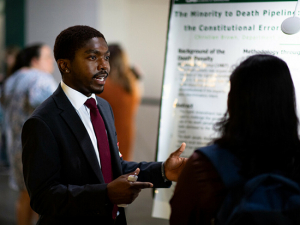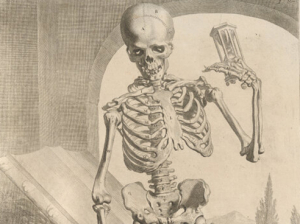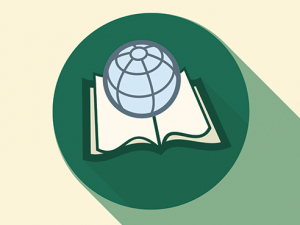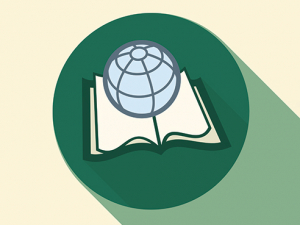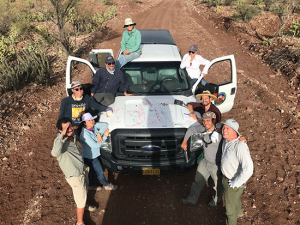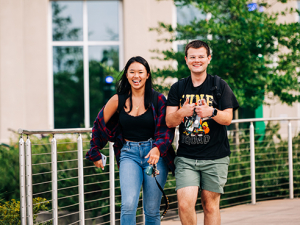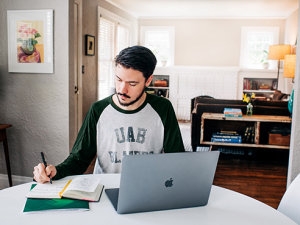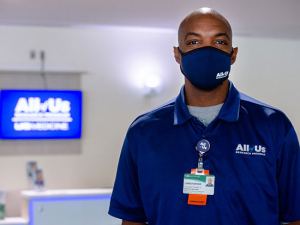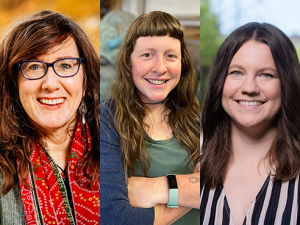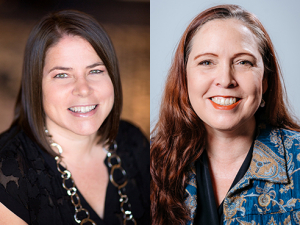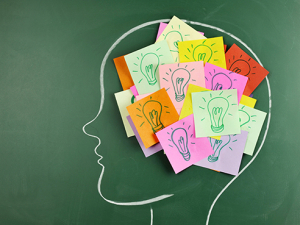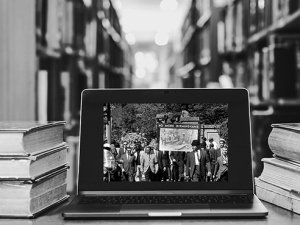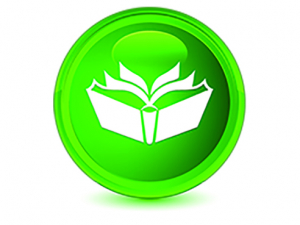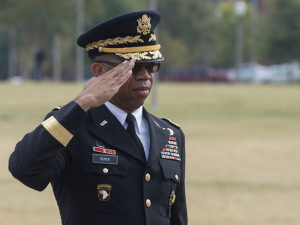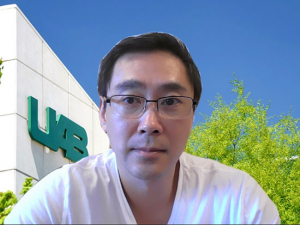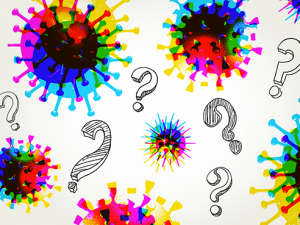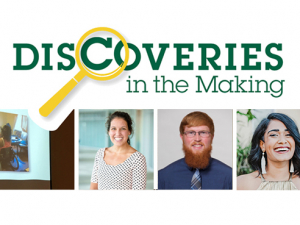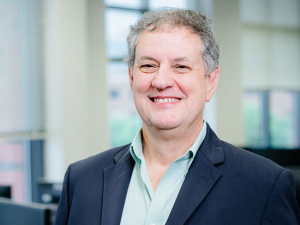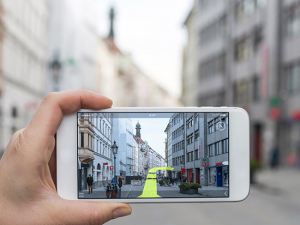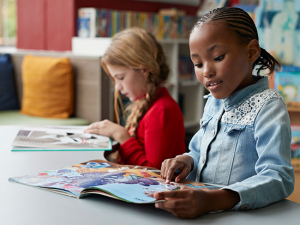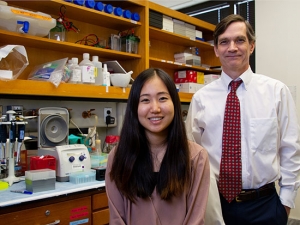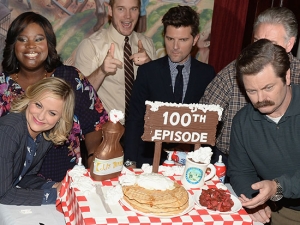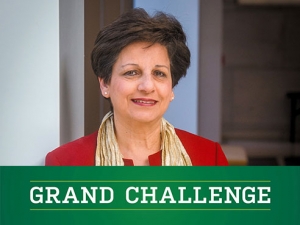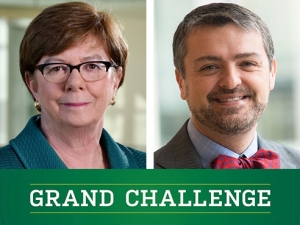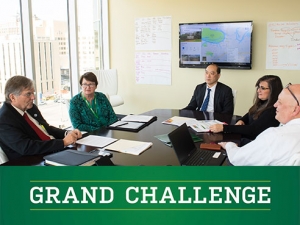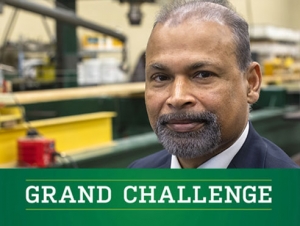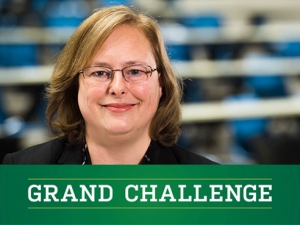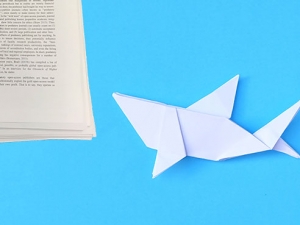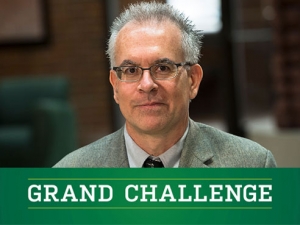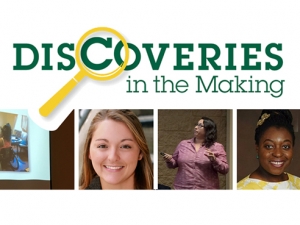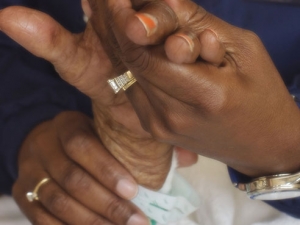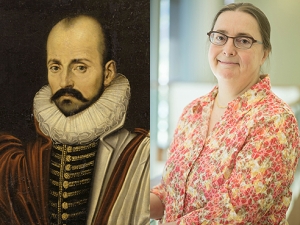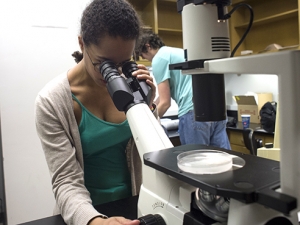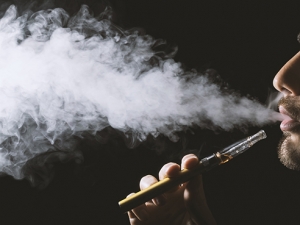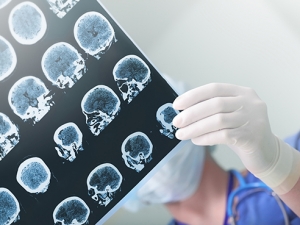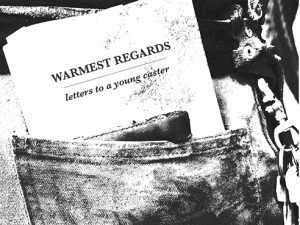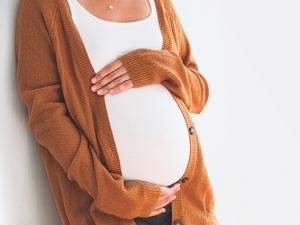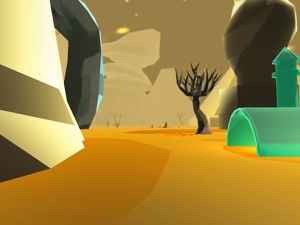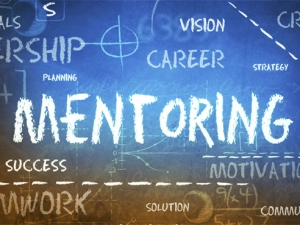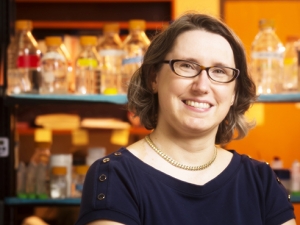-
Undergraduate researchers share six things you learn in UAB labsThree students who will present their work at the Summer Expo on Thursday explain the benefits of joining a UAB lab, from peer learning to practicing professional skills and more.posted a while back 2271 viewsWitches, skeletons, mythical beasts and more: Discover spooky illustrations and stories virtually or in-person with UAB Libraries
Visit permanent virtual exhibits “Monsters, Marvels and Mythical Beasts” and “Witchcraft, Women and the Healing Arts in the Early Modern Period," take a virtual-reality tour of Reynolds-Finley Historical Library, and see photos from rare books, manuscripts, journals and pamphlets that can be seen in-person in RFHL.
posted a while back 3246 viewsWant to publish Open Access? These 4 resources from UAB Libraries can helpResearchers can secure funding to cover article processing charges in open access publications and publish at no cost in Wiley and Cambridge journals, furthering UAB Libraries’ mission to advance research and scholarship equitability through prioritizing open access publishing.posted a while back 2658 viewsUAB authors can publish open access in Wiley, Cambridge journals at no costTwo agreements between UAB Libraries and Wiley and Cambridge University Press will enable university-affiliated authors to publish open access at no cost in more than 2,000 journals.
posted a while back 4831 viewsGeogenomics: Seeking diamonds in the desertGreer Dolby, Ph.D., leads an NSF-funded team using geogenomics to uncover new insights on the rules of life in Baja California. The emerging field requires “deep communication” across specialties and datasets — a critical need for 21st century breakthroughs.posted a while back 3643 views13 campus resources to help students beat the mid-semester slumpDuring the first few months of a semester, students can accumulate more questions about life as a Blazer than they had when they started. Discover resources for students spanning financial aid assistance, mental health, career prep and more.
posted a while back 4802 viewsExplore the benefits of Open Access publishing Oct. 24-28In recognition of International Open Access Week, the UAB Libraries Office of Scholarly Communication will host events aimed at educating the UAB community about the benefits of Open Access publishing in academic and research communities.
posted a while back 3800 viewsHow UAB researchers keep major studies moving in a pandemicFive faculty who are principal investigators of major cohort studies explain how COVID-19 forced them to rethink and respond — and how their projects are contributing to the fight.posted a while back 9068 viewsCAS faculty, staff collect 3 state arts council grantsKerry Madden-Lunsford, Stacey Holloway and Melissa Yes each were awarded a $5,000 fellowship to further their work and research.
posted a while back 5917 views2 CAS faculty receive Fulbright-Nehru Scholar awards for work in IndiaSocial Work’s Colleen Fisher will examine microfinance as a way to alleviate poverty among vulnerable women in low-resource countries, and Art and Art History Associate Professor Cathleen Cummings will study and map temples from the Bhosle dynasty of Nagpur, India.
posted a while back 6688 viewsNew resource can assist faculty with copyright, publishing questionsThe Office of Scholarly Communication can offer guidance about publishing agreements, copyright guidelines, Open Access publishing and more.
posted a while back 5644 viewsNew African American historical collections are ‘a tremendous asset’ for UAB LibrariesNew primary-source collections related to African American history and culture will provide a deeper understanding of Black history and its central place in the Birmingham community and beyond.
posted a while back 6472 viewsNew agreement to facilitate open access publishingUAB Libraries entered a transformative “Read & Publish” agreement with Cambridge University Press and also will add approximately 350 new journal titles to its collection.
posted a while back 6732 viewsResearch, training at UAB are improving the lives of America’s heroesInvestigators are contributing fresh approaches to homelessness, suicide and other issues facing veterans, while veteran students come to UAB in increasing numbers to prepare for new careers.
posted a while back 9114 viewsInterdisciplinary data science workshop moves from San Diego to spare bedrooms, but science continuesLearn how UAB bioinformaticist Jake Chen, Ph.D., and computer scientist Da Yan, Ph.D., shifted their venerable gathering online and aided the fight against COVID-19.
posted a while back 11129 viewsA philosopher explains how to balance rationality, scientific uncertainty in coronavirus claimsUncertainty can fuel scientific endeavors, leading to more and better discoveries and understanding. But what happens when the public misinterprets that uncertainty? Associate Professor Kevin McCain, Ph.D., says education, rational thinking and trust in experts can help protect citizens from being misled.
posted a while back 16827 viewsDiscoveries in the Making returnsHear UAB graduate students and postdocs discuss the results of their research during monthly presentations at The Lumbar.
posted a while back 6589 viewsSolve crimes — and find jobs — with satellites and spreadsheetsCriminal Justice Chair Jeffery Walker, Ph.D., explains how in-demand crime analysts do their jobs and applies chaos theory to uncover the reasons neighborhoods fall apart.
posted a while back 9561 views‘Smart city’ tech can bring a billion people out of the shadowsAugmented reality, sensors and high-speed internet could change the lives of 1 billion people worldwide with disabilities — with surprisingly little extra investment, according to a new paper by Institute for Human Rights Director Tina Kempin Reuter, Ph.D.
posted a while back 9362 viewsStudies put the 'magic of intervention' in autism to the testUAB is recruiting participants for the largest-ever study of an intensive reading intervention among high-functioning children with autism spectrum disorders. In another new trial, researchers are studying an intensive social intervention for young adults with ASD.
posted a while back 11755 viewsKwon helps power search for ALS breakthrough as UAB works to support more young scientistsAn endowed scholarship fund honoring a founder of UAB’s ALS program will help undergraduates such as Yuri Kwon — set to present her work to the American Academy of Neurology in May — take part in groundbreaking research.
posted a while back 11813 views9 times 'Parks and Recreation' taught us how to get real about ethicsErin Borry leverages sitcom laughs to prepare future bureaucrats for sticky situations in government work.
posted a while back 21079 viewsHealthy Alabama 2030 team charts changes to lift state rankingsGrand Challenge finalist plans to make Alabama a model of healthy living by expanding proven innovations and changing policies, neighborhoods, schools and workplaces.
posted a while back 14808 viewsTransform life in Alabama through telehealth, UAB team proposesLack of access to care is the biggest contributor to Alabama’s health woes and technology offers a solution, according to the REACH project, a finalist in the UAB Grand Challenge.
posted a while back 11546 viewsHOPE plans to transform rural, urban communities through longer, better livesThe Alabama HOPE Project, a Grand Challenge finalist, would bring change through education, health and economic opportunity, starting in Birmingham and Marengo County.
posted a while back 10643 viewsUAB team wants to build a roadmap to a model cityWhat does a smart, sustainable city look like in the 21st century? This Grand Challenge proposal would create a large-scale testbed for new approaches in technology, policy and sustainability in Birmingham to prove best practices to be used by cities throughout Alabama, the United States and the world.
posted a while back 10416 viewsTo reverse Alabama’s opioid crisis, UAB team proposes an all-out effortThe project, a finalist in the Grand Challenge, promotes clinical intervention, education and research to prevent opioid overdoses.
posted a while back 11194 viewsWith ‘predatory’ journals, it’s publish and perish, UAB study arguesPay-to-publish journals are often outright scams and undermine the foundation of legitimate research, says Arline Savage, Ph.D. Here’s how faculty and their departments can defend themselves.
posted a while back 11814 viewsUAB team plans to build a ‘Silicon Valley of the South’ model for growthSuccess will position UAB, Birmingham and all of Alabama at the epicenter of the race to develop the advanced materials that will power the 21st century.
posted a while back 11740 viewsDiscoveries in the Making series returnsLearn what UAB graduate students and postdocs are uncovering in their research during five events this spring.
posted a while back 7009 viewsNew book examines what happens when modern families meet old ageSociologist Patricia Drentea considers the ramifications of social patterns in the United States and shares six intriguing trends that will shape the next 50 years.
posted a while back 8460 viewsNew ‘History of Ideas’ prize encourages essay submissions through Jan. 6The Michel de Montaigne Endowed Prize in the History of Ideas, established by CAS Senior Associate Dean Catherine Daniélou, Ph.D., is inspired by the 16th-century French essayist of the same name.
posted a while back 8252 viewsFaculty fellows introduce team-based research coursesSeven faculty spent a year developing ideas for undergraduate research courses that focus on collaboration and innovation, with themes such as synthetic biology and police-community relations.
posted a while back 11527 viewsDoes vaping lead to abuse of illicit substances? Rehab scientists use i2b2 to find answersWith electronic-cigarette use on the rise, doctoral student Abdullah Alanazi and Eric Ford, Ph.D., professor in the School of Public Health, want to understand the trend’s relationship with drug use — and is using UAB’s informatics framework for translational research to do it.
posted a while back 8515 viewsData could help standardize use of therapeutic comas for epileptic patientsThere’s no evidence-based consensus on how long a seizure-ridden patient should be kept in an artificial coma to enable the brain to recover. Wolfgang Muhlhofer, M.D., an assistant professor of neurology, wants to change that.
posted a while back 8355 viewsHolloway chronicles iron-casting art history through the words of its pioneersStacey Holloway, MFA, assistant professor of sculpture, partnered with colleagues to publish a collection of letters to a fictional young iron-caster written by 21 iron-casting innovators.
posted a while back 8311 viewsi2b2 helps answer questions about spina bifida and reproductionMany women with spina bifida were leaving pediatric care unaware they could become pregnant. Now groundbreaking data on this phenomenon has been compiled using a new informatics framework for translational research.
posted a while back 13616 viewsVirtual reality may hold pain-relieving promise for paraplegic patientsThe therapy game may have the potential to revolutionize treatment of neuropathic pain in paralyzed patients, which is notoriously hard to treat.
posted a while back 16885 viewsTwo faculty mentors go the extra mile for their studentsUAB mentors Farah Lubin and Bertha Hidalgo believe mentorship can change the course of a student’s life — a responsibility they don’t take lightly.
posted a while back 16161 viewsRiddle researches the influence of a chromatin protein family on genesNicole Riddle, PhD., received a NSF CAREER Award to fund her research of the Heterochromatin Protein 1 family and create a lab course to introduce transfer students to original research.
posted a while back 13805 views- Women ages 18 or older needed for study of oral investigational drug to prevent recurrent vaginal yeast infections
-
Do you vape or live with someone who vapes? Then you may be eligible to participate in this PAID vaping and lung function study.
Tags: addiction
- Participants need for balance and mobility study
